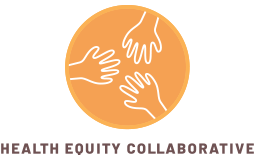15 Jun To achieve health equity, lawmakers must point 340B back in the right direction
June 15, 2021
Lawmakers are pursuing a range of efforts to eradicate America’s healthcare inequities. They’re creating a Health Equity Task Force, pushing for widespread broadband internet access, and making telehealth a more viable option for low-income and rural communities.
And yet, some fundamental barriers to health equity still remain unaddressed — hiding in plain sight within a government drug discount program.
The program in question, known as 340B, was passed by Congress nearly three decades ago. Lawmakers envisioned 340B helping low-income and uninsured patients — a disproportionate number of which are minorities — access affordable prescription medications and charitable hospital care.
Under the program, qualifying hospitals or “safety-net providers” that serve low-income and uninsured patients could purchase prescription drugs at significant discounts. The intent was for these 340B-covered entities to use their savings to provide more charitable services to underprivileged patient populations.
Unfortunately, though, loopholes and lack of oversight have empowered bad actors to take advantage of some aspects of the program’s charitable nature.
Due to relatively lax eligibility requirements, hospitals that serve very few vulnerable patients may still qualify for 340B participation. And they are not forced to disclose where they direct their 340B savings.
Too often, these providers abuse the 340B system by purchasing the discounted drugs and selling them without the markdown to affluent, insured patients. After billing their insurance companies, the hospitals are reimbursed for the full price of the drugs. They make a neat profit that they can put towards everything from executive bonuses to construction projects.
Nowadays, more than 60% of 340B hospitals actually provide less charity care than the national average for all hospitals. And for one-third of 340B disproportionate share hospitals, charity care accounts for less than 1% of total patient-related costs.
Adding to this profiteering problem are contract pharmacies. Since 2010, 340B hospitals have been allowed to contract with an unlimited number of third-party pharmacies — like Walgreens and CVS — to fill their prescriptions. Similar to the hospitals they work with, these pharmacies are also able to cash in on 340B’s drug discounts.
These dishonest entities are restricting the charitable care afforded to low-income, insured patients and chipping away at 340B’s potential to combat rampant healthcare inequalities.
Consider that white families currently hold 84% of household wealth in America. For decades, Americans in the top income bracket have received up to 43% more care than those in the lowest bracket. White Americans are also far more likely to be insured than minorities. These two factors, along with other social determinants of health, are significant contributors to racial health disparities.
The improper practices of certain hospitals and contract pharmacies within 340B only reinforce this inequity. Whereas affluent, insured patients are frequently viewed as reliable revenue-generators, the uninsured are viewed as high risks. It’s not uncommon for Disproportionate Share Hospitals to turn underprivileged patients away — even if those patients are critically ill and require rapid care.
To make true headway on addressing health inequities, lawmakers must find a way to patch the program’s holes. Yale’s Dr. Marcella Nunez-Smith, Chair of the Biden Administration’s Health Equity Task Force, recently stated that “we cannot just sit around admiring the problem anymore.”
She’s absolutely right. It’s time for lawmakers to heed the call and restore 340B to serve its original purpose for the sake of the most vulnerable among us.


